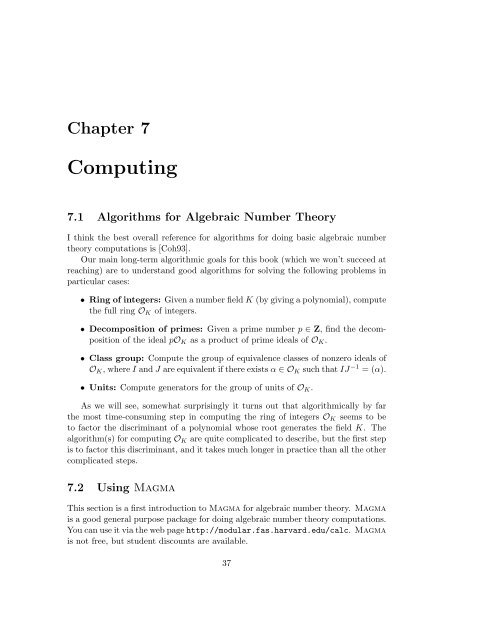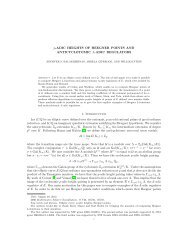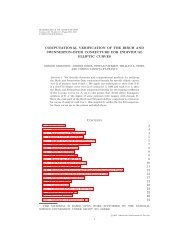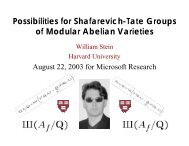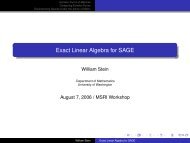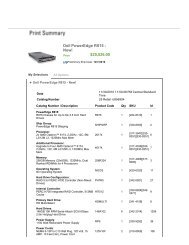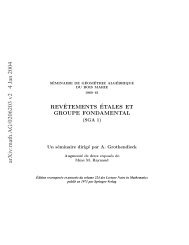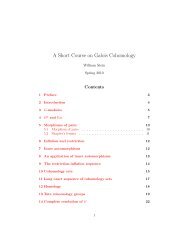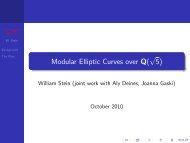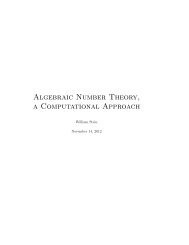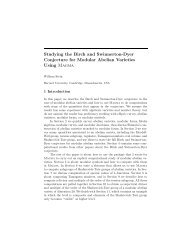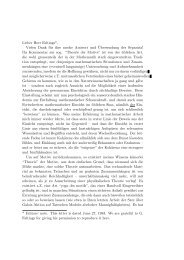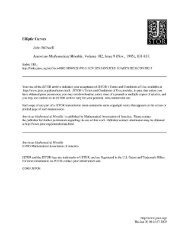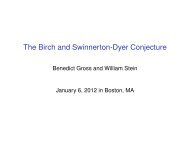A Brief Introduction to Classical and Adelic Algebraic ... - William Stein
A Brief Introduction to Classical and Adelic Algebraic ... - William Stein
A Brief Introduction to Classical and Adelic Algebraic ... - William Stein
You also want an ePaper? Increase the reach of your titles
YUMPU automatically turns print PDFs into web optimized ePapers that Google loves.
Chapter 7<br />
Computing<br />
7.1 Algorithms for <strong>Algebraic</strong> Number Theory<br />
I think the best overall reference for algorithms for doing basic algebraic number<br />
theory computations is [Coh93].<br />
Our main long-term algorithmic goals for this book (which we won’t succeed at<br />
reaching) are <strong>to</strong> underst<strong>and</strong> good algorithms for solving the following problems in<br />
particular cases:<br />
• Ring of integers: Given a number field K (by giving a polynomial), compute<br />
the full ring OK of integers.<br />
• Decomposition of primes: Given a prime number p ∈ Z, find the decomposition<br />
of the ideal pOK as a product of prime ideals of OK.<br />
• Class group: Compute the group of equivalence classes of nonzero ideals of<br />
OK, where I <strong>and</strong> J are equivalent if there exists α ∈ OK such that IJ −1 = (α).<br />
• Units: Compute genera<strong>to</strong>rs for the group of units of OK.<br />
As we will see, somewhat surprisingly it turns out that algorithmically by far<br />
the most time-consuming step in computing the ring of integers OK seems <strong>to</strong> be<br />
<strong>to</strong> fac<strong>to</strong>r the discriminant of a polynomial whose root generates the field K. The<br />
algorithm(s) for computing OK are quite complicated <strong>to</strong> describe, but the first step<br />
is <strong>to</strong> fac<strong>to</strong>r this discriminant, <strong>and</strong> it takes much longer in practice than all the other<br />
complicated steps.<br />
7.2 Using Magma<br />
This section is a first introduction <strong>to</strong> Magma for algebraic number theory. Magma<br />
is a good general purpose package for doing algebraic number theory computations.<br />
You can use it via the web pagehttp://modular.fas.harvard.edu/calc. Magma<br />
is not free, but student discounts are available.<br />
37


